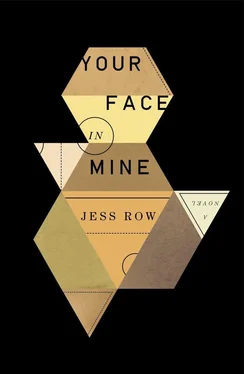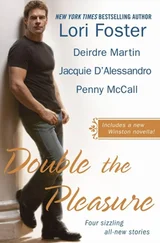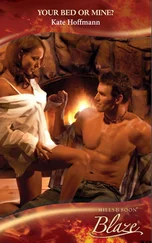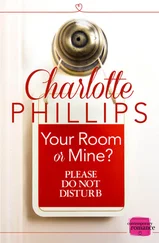We barely discussed “Tailor’s Dummies” in class. It was just before midterms and Klefkowitz had already told us Schulz wouldn’t be on the test. Too hard, he said. Too weird. I think I was the only person in class who read it. And when I did — after I’d looked up what Demiurge meant — my whole body lit up like a lightbulb. I mean, I didn’t know what it meant vis-à-vis Martin Lipkin. So I went to Klefkowitz, to his office hours, and asked him, what the hell is this? Is this Judaism?
No, he said. I mean, yes. In a sense. But no.
Well, which is it?
He got up from his shelves and put his fingers on this fat purple book — I saw the spine. It read The Zohar. To me that sounded like something out of Ghostbusters. Then he turned and sat back down. No, he said, really weary, you have to find that out for yourself.
Well, what does this part mean? Even if the classical methods of creation should prove inaccessible for evermore, there still remain some illegal methods, an infinity of heretical and criminal methods. What kind of heretical and criminal methods?
Then you know what he did? He slid his chair over to me and put his hand on my face. Like he was a blind man.
You’ll figure it out, he said. The important thing is, you felt something.
All I was really doing in college was thinking about college. As a marketplace. As the final nut to crack in the world of large-scale pot retailing. Seymour kept calling me — he was living up in Burlington by then — new product was coming online, hotter and hotter stuff: cyber-pot, we used to call it. But college networks were so insular. You had to find a way to override all of that and cut out the middleman. So we invented this thing called the Little Green Bus. Maybe you heard of it, at Amherst? It was a college-to-college van service, staffed by students, coordinated by students. By this time the Internet was really up and running and I put the whole reservation thing together that way. Except for the payment. No one would use credit cards online back in those days, so I had to hire a girl in Catonsville, a friend from my econ class, to take orders over the phone.
Anyway: you wouldn’t believe how popular we were. We had three routes: the long one, Duke to Burlington; the short one, Burlington to Princeton; and the east-west, Harvard to Oberlin, stopping at Amherst, Cornell, and Kenyon. And our drivers — well, they were paid a percentage of sales. Some of them made enough for college themselves doing it. We couldn’t pack the vans tight enough. Everyone knew what the Little Green Bus was for. The weed had a brand name: we even had custom-made horns that played “Brown-Eyed Girl.” I swear to God, there were places — Sarah Lawrence was one — where we’d sell out the store and have to send an overnight driver down from Burlington to restock for the rest of the trip south. And we were doing it with a fifteen percent markup for convenience. No one cared. The product was awesome. The whole thing was a guerrilla sales company before the concept existed. Word of mouth. No advertising. No corporate address. All the fleet management was done by a guy Seymour knew in Hartford: he painted the vans, he fixed the vans, he provided the gas cards for the drivers. We paid him in cash. No taxes, no filings. The credit card account went to a Mailboxes place on York Road.
It was genius, and it lasted three years. Longer than we ever imagined. Right through the millennium. Finally, one of our drivers had an accident — in an empty van, by some miracle. Taking it in for service. Rolled it over on 91 near New Haven and ripped the chassis open. Bricks of weed all over the shoulder. Seymour sent the guy bail money and then somehow got him on a plane to Honduras. No names, no evidence, but the whole network had to go overnight. We left fifty thousand dollars out on the road, plus the value of the vans. Just abandoned them wherever they were. One guy drove his off a pier into Lake Erie. Another took his out to Moab, got all the pot out, and then torched it in a bonfire out in the desert, or so the story went.
And all this time Seymour was in Vermont, running the wholesale operation, and I was still here, in Dad’s house, running Little Green Bus and picking up checks from that mailbox out on York. We talked only on pay phones, like real drug dealers. And I was getting a little paranoid, with hundreds of thousands of dollars of cash in the house. Because that’s how much it was. I kept my expenses basically at zero. Survived on Chinese food and those bagged premade salads from the supermarket. Still drove Dad’s old Scirocco. Wore two pairs of black jeans and a black Carhartt hoodie. But the isolation was wearing me down. Alan was long gone. Everyone else from Willow was out of college by now and living in Brooklyn or Berkeley or China. I hadn’t made hardly any friends at UMBC, and I wasn’t playing music or going out much. The work was seven days a week, twenty-four/seven; I had to carry two pagers and a cell every time I left the house, even to walk around the corner.
So, to make a long story a little shorter: I bought a gun. Not for any good reason. We made no enemies. No turf wars. Never sold shit in Baltimore; Hopkins wasn’t even on our radar. Nobody was going to try to rob the house; it was still the fortress it always was. But living alone so much of the time — and watching too many movies, too much bad TV — makes anyone crazy. You get so you can’t even make conversation with the girl giving you change for a meatball sub at the deli. Everyone starts giving you these big eyes. So I bought one gun, a Glock. Kept it under my pillow. Then Jonas, the guy I bought it from, offered me a discount on a hot double-barreled Mossberg. I kept that one next to the front door. If I had to I could kill someone by shooting through the door. Then another Glock to keep under my seat in the car. Then a little gun, a Walther PPK, 25 caliber, that I kept in my waistband wherever I went. Then, just for the hell of it, I bought an AR-15 kit gun off the Internet. Screw-on silencer, extra-long clip. No special reason other than that any kid who grew up watching The A-Team wants one of those things. I just wanted to take it out to the range and see the look on people’s faces. Hell, going to the range had become my only means of entertainment other than jerking off. I had an unlimited pass. In a couple of months I’d gone from just another unarmed Joe Schmo to the owner of my own private arsenal.
And then Seymour came for a visit. Just stopping through. We hadn’t seen each other face-to-face in nearly a year. He came through the door and took it all in with one look. I was holding the Mossberg in one hand and a bottle of NoDoz in the other. That was my drug of choice in those days. Espresso wasn’t strong enough. Epinephrine freaked me out. Coke and meth were too dangerous. So I’d take six NoDoz at a time, ground up in a Mountain Dew.
Look at yourself, he said. This isn’t just pathetic. It’s dangerous. This isn’t the business we’re in.
How do you protect your money?
I hide it, he said. I launder it. I can teach you all that shit. Why didn’t you just ask? You need a course in Drug Banking 101. But first you need a vacation. Callie’s taking over Little Green Bus. You’re coming back with me to Burlington, right now.
And you know what? I knew he was right. I had to get out of town. Baltimore was killing me. That house was killing me. All Dad’s things were still around: his pictures, his records, his clothes in the closet. I still slept in my old room, on the same bed I’d had since middle school. I was turning into some kind of pale underground fish, you know, the kind that live in caves, that never see daylight in their entire lives? I was turning into a bat. My skin kept breaking out. I hadn’t had a girlfriend in years, but I was watching porn and jerking off four times a day. It was deforming me, all this easy money. It was warping my spirit. Ultimately, I’d screw up somehow and get caught. Or go crazy. Or get so sad I’d kill myself. Or do it by accident, cleaning my guns. Seymour made me get rid of them before I left. One by one, we filed off the serial numbers and threw them over the Tydings Bridge into the Susquehanna. I cried, doing it; it was like killing kittens. Those guns were innocent. They were the only family I had. Then I curled up and fell asleep in the back of his Wrangler and woke up the next morning in the Green Mountains.
Читать дальше












